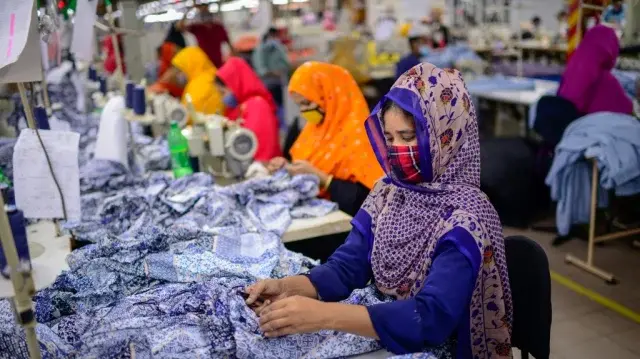Bangladesh Factories Closing, Slowing Growth: Risks of Unchecked Inflation & Investment Decline
By Today International News
Published: October 10, 2025
Rising Factory Closures Threaten Economic Momentum
Bangladesh is witnessing an increase in factory closures, particularly in the garment and manufacturing sectors, raising concerns about slowing economic growth. Rising operational costs, supply chain disruptions, and declining profit margins are cited as primary reasons for these shutdowns.
These closures threaten to undermine the momentum built in previous fiscal years, impacting both domestic output and export revenue. Analysts warn that if the trend continues, it could ripple across related industries, including logistics, packaging, and services.
Foreign Investment Decline Adds Pressure
Foreign direct investment (FDI), a critical driver of industrial growth, has also slowed. Investor confidence has been affected by rising inflation, currency volatility, and regulatory uncertainty.
A drop in FDI not only reduces capital inflows but also limits technology transfer, skill development, and job creation—factors essential for long-term economic competitiveness. Experts emphasize that restoring investor confidence is vital to reverse the slowdown.
Inflation’s Role in Economic Stress
Unchecked inflation is a significant factor affecting both factories and households. Rising energy prices, raw material costs, and wage pressures are squeezing profit margins, forcing some factories to suspend operations.
For consumers, higher prices reduce purchasing power, curbing demand for manufactured goods. This dual impact—on producers and consumers—creates a feedback loop that can further slow economic activity.
Implications for Employment and Stability
Factory closures and declining investment directly affect employment, particularly for low- and mid-skill workers. Job losses in industrial hubs increase unemployment, strain social safety nets, and could exacerbate urban migration challenges.
Long-term economic stability is also at stake. Without corrective measures, Bangladesh risks slower GDP growth, reduced export competitiveness, and limited diversification into high-value sectors.
Policy Recommendations for Recovery
Experts suggest a multi-pronged approach to address these challenges:
-
Inflation Control: Implement targeted fiscal and monetary policies to stabilize prices.
-
Investment Incentives: Simplify regulations, provide tax benefits, and ensure transparent business processes to attract FDI.
-
Industrial Support: Offer subsidies or credit facilities for struggling factories, especially in strategic sectors like textiles and technology.
-
Workforce Development: Invest in upskilling and reskilling programs to maintain employability amid industrial shifts.
Proactive policies can help mitigate the immediate risks while laying the groundwork for sustainable, inclusive growth.
Conclusion: Navigating a Critical Juncture
Bangladesh faces a critical juncture as factory closures, inflation, and declining foreign investment threaten growth and employment. Coordinated action by policymakers, businesses, and investors will be essential to stabilize the industrial sector and safeguard long-term economic stability.

